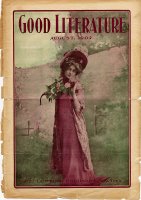Defining The Standard
 Scott O. Brown, Guest Contributor over at CBR, recently posted a column about defining a standard and applying some basic rules to the medium. This criteria can then be used to determine the best comics based on their literary, artistic, and historical context. I thought his breakdown was fascinating, simple to use, and I might even deliberately try it out on an upcoming round of reviews to see how it fits. I'm admittedly paraphrasing, but it goes something like this;
Scott O. Brown, Guest Contributor over at CBR, recently posted a column about defining a standard and applying some basic rules to the medium. This criteria can then be used to determine the best comics based on their literary, artistic, and historical context. I thought his breakdown was fascinating, simple to use, and I might even deliberately try it out on an upcoming round of reviews to see how it fits. I'm admittedly paraphrasing, but it goes something like this;Literary Context: the story itself, does the narrative pose a moral or intellectual argument? Without this, there's no inherent literary merit. Is there emotional ressonance or learning experiences that either the characters or audience can grow with? And simply, the story must work. It has to play by the rules of the story itself and form a coherent story structure.
Artistic Context: the merit of the art itself, does it serve the story? Does it exhibit the proper style or tone, supporting or enhancing the story? Does it boast clear panel to panel storytelling? It must tell a story sequentially. Is it innovative? Remember that average art can be elevated by a great story, but bad art can destroy genius storytelling. If the content isn't clear, the art has failed to rise to the standard.
Historical Context: is the work important for reasons other than its inherent content? Is it the first of its kind? Was it critically or commercially successful in some significant way culturally? Did it change or influence the medium for better or worse? Works can have any combination of the criteria, but there are some interesting examples. A work can be strong in the first two categories, but not the last (ie: it delivers on its promise, a fun adventure book, but nothing more, no greater significance). It can also have nothing to offer artistically or in a literary sense, but be significant historically.
Thanks to Scott for daring to ask the complex question, how do we define criteria to determine "what is 'good' comic book literature?"

0 Comments:
Post a Comment
<< Home